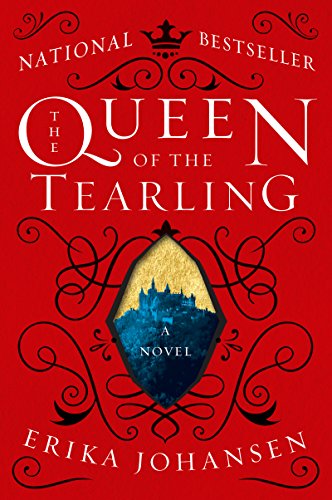I try not to be hugely jaded when I start a new YA book about a young woman unprepared to find out she's royalty of a fantasy kingdom and has to assume the throne. And I guess in this case, the young woman in question (Kelsea) was raised knowing she was the heir, just far away from the centres of power. I don't mind this aspect of the Arthurian legend being applied to young women in our context, but I've so rarely seen it done well.
In this case, the book and I didn't get off on the best foot, as for approximately the first hundred pages or so, the narrative relied heavily on a trope everyone should know I hate. It's lazy, and it's infuriating. It is this: there's information the young person really should know, and the people around them know it and have the time to share, but refuse for no fucking good reason, just bullshit like "if you don't know, I can't tell you!" or "you'll find out soon enough, highness," or just plain "I'm not going to tell you." This narrative trick to slow down the story makes me stabby, and I wish writers would cut it the fuck out.
Particularly, in this case, when the young person in question is riding to take possession of her kingdom, surrounded by men loyal to her cause, and has every reason to not only want to know about the state of her kingdom, but a huge need to! You know, you can tell people things! Even difficult things! And in fact, their responses might be stronger and more nuanced if they had the time to think things through instead of being thrust into situations! Kneejerk reactions are not the be-all and fucking end-all!
Except when it comes to slavery, which is always, unequivocally bad, but there was nothing to be gained by not telling Kelsea that every year, hundreds of her citizens were being rounded up and sent to slavery in a more powerful neighboring country as the cost of keeping the peace. It doesn't help to withhold this information, and it wouldn't lessen the emotional impact of seeing it. If you really want to see her shock from a completely oblivious standpoint, then find an excuse why the question never comes up, rather than her asking half a dozen fucking times and having people not answer. Kelsea, these people may suck as your advisors, if they won't tell you this basic shit. Seriously.
Luckily, once she got to the capitol and freed the slave caravan and took over the throne, the book got quite a lot better. It then became a more interesting tale of her trying to consolidate power and do the right thing instead of Knowledge-Keep-Away. She finds interesting allies, the betrayal from within their ranks is well done, as is her growing sense of self and what she must do (and the magical powers than come along with it, because of course the necklaces she has are magical).
But are they magical? Is this book a fantasy? People in the world call it magic, and the power of the Red Queen of the evil neighbouring country is also so deemed. We see the Red Queen summon something we're supposed to think is a demon to devour the life force of a child (just in case we weren't convinced she was Bad-with-a-capital-B). However, there are also what feels like strong hints that this might actually be science fiction instead, and either the next two books have some nifty reveals, or this is just a confused mishmash. I'm not sure which yet, but I'll give Johansen the benefit of the doubt.
The reasons it feels suspiciously like SF are the tales of how they came to this new country, with a leader trying to found a socialist utopia that failed (with a king? More explanation, please.) It's said quite clearly that they came in ships from Europe and North America to found these new kingdoms in new lands, losing most of their science on the way. Science that seems to have been very advanced. And they have no connection to the lands from which they originally came.
In other words, if these aren't generations-distorted tales of a caravan of space ships moving between planets, then I am going to be very highly disappointed. This idea works nicely where literal ships would not. Technology levels are all over the place, but there seems to be at least the potential for devices that are at least as powerful as we have now, so this strongly points to science fiction, in much the same way that Anne McCaffrey's Pern books are science fiction.
If this all pays off, and we keep exploring the difficulties in re-establishing a socialist kingdom (really? A kingdom?), then I'll be happy. If not, I'll be an old cynic once again. There's potential here. Will it pay off?

SPOILER
ReplyDelete-
-
-
-
You’re going to be disappointed. (In my opinion.)
Well, truthfully, the second book wasn’t disappointing to me. But the third book wanted me to do things to it that are unspeakable! Unspeakable! Luckily, I was reading it as an ebook on my phone and I love my phone too much to destroy it over a writer’s lazy, horrible, what-was-she-thinking ending. Other people loved it, but it was a cop-out. I’m still mad.
That's too bad! I'll let you know what I think when/if I get to them.
DeleteI am curious as to what you'll think of them. Good luck and make sure there is nothing breakable in your arm-throwing path! ;)
ReplyDelete...I'm still mad.